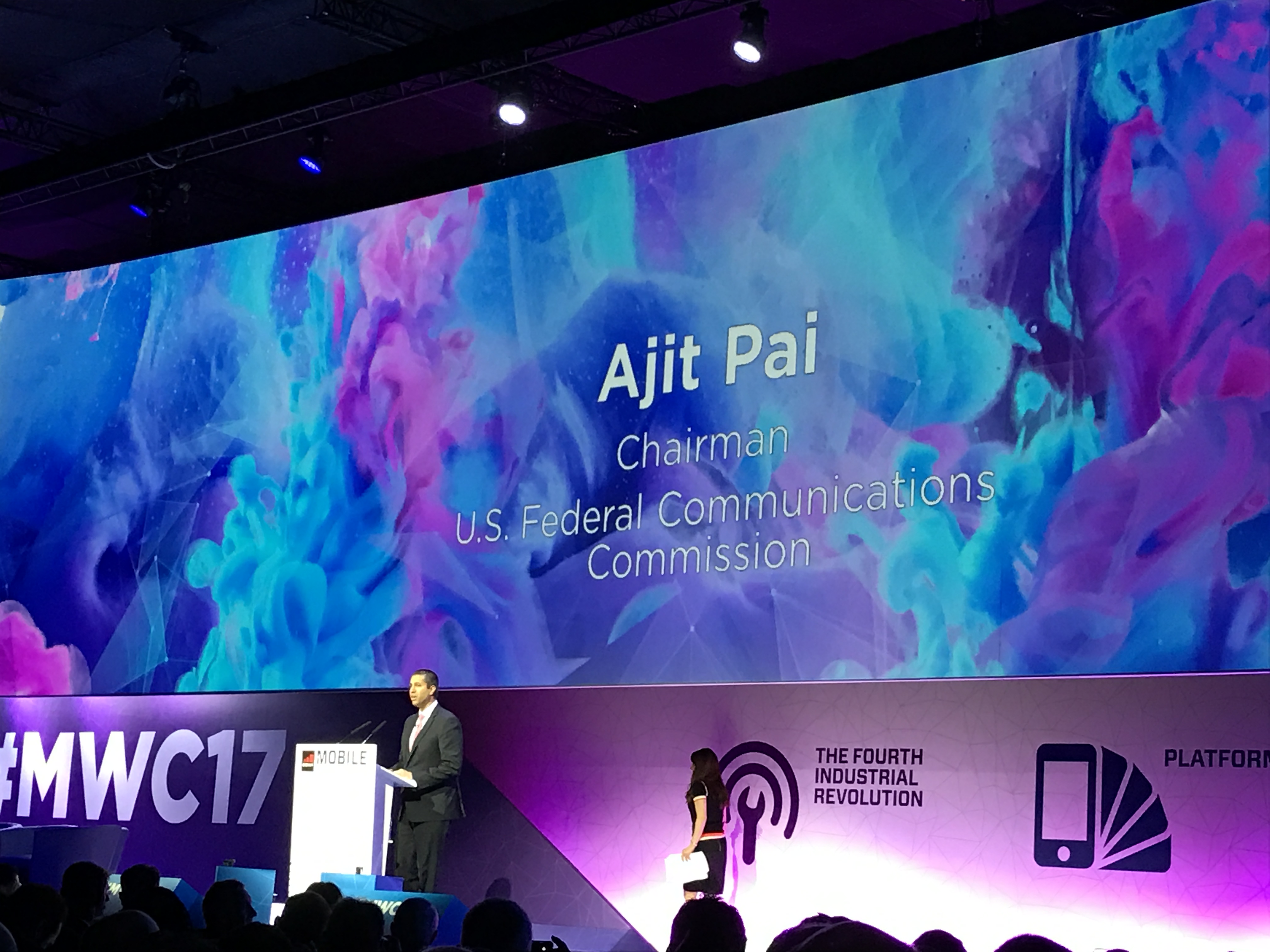

In a move that has been widely expected since he was named Federal Communications Commission chairman, Ajit Pai has announced that he plans to end the changes his predecessor made when the FCC decided that the internet should be covered by Title II of the Communications Act.
Pai was a commissioner when former Chairman Tom Wheeler forced through the change at the direction of the Obama White House and he said at the time that the change to the status of the internet service providers was a mistake.
Pai spoke on “The Future of Internet Freedom” at Washington’s museum of journalism, the Newseum, when he outlined his intention.
Pai notably said that he intends the whole process of the Notice of Proposed Rulemaking to be handled in the open, with public hearings and open discussions, starting with the release of a formal “Notice of Proposed Rule Making” on April 27. He said that his proposal would go through a public comment period starting with an FCC meeting in May.
The process Pai outlined is in contrast to the procedures typically followed by Wheeler who was known for handling much of the FCC’s business in secret and only making the decisions public after the commission had voted on them.
Pai had been opposed to such secret meetings and closed discussions during his time as a commissioner. Shortly after being appointed Chairman Pai announced that the days of secrecy were over.
In his speech, Pai decried the interference by the White House in the operations of an independent agency and that before the February 2015 Title II decision the internet was regulated under a set of rules developed in the Clinton Administration and approved by a Republication Congress that called for a light touch in terms of regulation.
“The Internet is the greatest free-market success story in history,” Pai said. “And this is in large part due to a landmark decision made by President Clinton and a Republican Congress in the Telecommunications Act of 1996.”
In that legislation, Pai said, they decided on a bipartisan basis that it was the policy of the United States ” ‘to preserve the vibrant and competitive free market that presently exists for the Internet . . . unfettered by Federal or State regulation.’ ”
Pai said that the light regulatory touch was what resulted in the massive growth of the internet that supported the birth of many new companies not the least of which were Google, Facebook and Netflix.
“Under this framework, the private sector invested about $1.5 trillion to build the networks that gave people high-speed access to the Internet. And under this framework, consumers benefited from unparalleled innovation,” Pai said.
Pai then asserted that once the internet was moved under Title II investment dropped, ISPs, especially smaller ones, had trouble getting the financing to expand and as a result, Americans were getting slower, more expensive broadband than the rest of the world.
Originally published on eWeek
Page: 1 2
All Cybertrucks manufactured between November 2023 and February 2025 recalled over trim that can fall…
As Musk guts US federal agencies, SEC issues summons over Elon's failure to disclose ownership…
Moonshot project Taara spun out of Google, and uses lasers and not satellites to provide…
Pebble creator launches two new PebbleOS-based smartwatches with 30-day battery life, e-ink screens after OS…
Amazon loses appeal in Luxembourg's administrative court over 746m euro GDPR fine related to use…
Nvidia, xAI to participate in project backed by BlackRock, Microsoft to invest $100bn in AI…